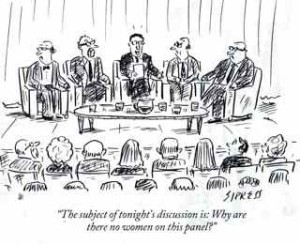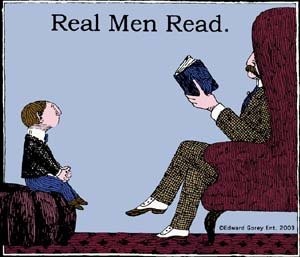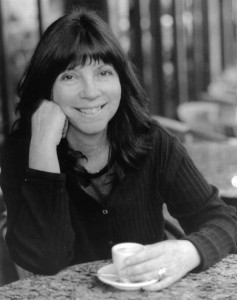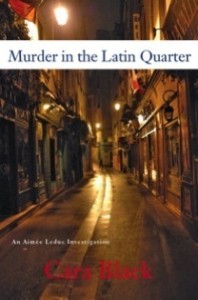by Debbie Burke
Please welcome a Brave Author (BA) from South Africa who submitted a first page described as “Comedic Crime/Black Comedy.” Read and enjoy then we’ll discuss.
~~~
It was an icy Monday, the day they came for him.
I’d crunched across the frost that covered the office courtyard.
I’d been reconciling the company bank statement when I felt, more than heard, a silence fall over the open plan office. Two men stood in the doorway. Plain clothes. But they had that look about them. They wore ties and reeked of government.
Millie, in reception, gestured towards the glassed-in cubicle at the end from which Primo conducted the affairs of the firm.
The men nodded as they passed our desks. Primo pushed his chair back and stood, arm stretched, hand open to greet them. A broad smile fixed on his florid face.
Was I wrong about the men?
They shut the door. I glanced around at my colleagues. Everyone was watching. Some gawked unabashed, others peered surreptitiously over the top of their PC’s. We couldn’t hear the words, but we could witness the gestures, expressions, and movements. I bet Primo regretted all the glass now. His motive was to keep an eye on us, but now we had prime seats for a mime spectacle.
Primo tapped the pack of Peter Stuyvesants on his desk, plucked out a cigarette and lit it. He took a deep drag, then with an arrogant tilt of his head, blew smoke rings to the ceiling. He waved at the two chairs, but the men kept standing. The older man spoke.
I imagined he was inwardly chanting, deny, deny, deny.
Finally, the smile slid off his face, and he slumped into his chair.
It didn’t take long.
One gent unplugged the computer and tucked the chassis under his arm with ease. The other helped Primo out of the chair.
Primo’s eyes found mine with an unblinking stare. A vein throbbed at my temple. I was a rabbit caught in the headlights. The tax tip-off line’s anonymous, but he knew. I was the only one who could know. The bookkeeper knows everything.
He walked through the office, shoulders squared, but he was stiff and lurching. He could feign innocence, but the evidence I provided was irrefutable. I looked away, but lifted my gaze to watch his retreating shape. His stink of cigarettes was now laced with the sour smell of fear.
He faltered, then looked back at me, and with an intense fevered stare, he dragged his finger across his throat in a slitting gesture.
~~~
Okay, let’s dig in. I found a lot to like about this first page. The opening sentence sets the time of year without over-describing the weather. The tone is foreboding.
By the second and third paragraphs, the first-person narrator is established as a bookkeeper for a company under investigation by government officials.
“I felt, more than heard, a silence fall over the open plan office.” That’s a fresh way to describe the auditors’ arrival, showing the palpable effect on all employees who immediately know something is very wrong. This also establishes the physical setting in a few words. Well done!
“They wore ties and reeked of government.” Another quick, efficient description.
“…the glassed-in cubicle at the end from which Primo conducted the affairs of the firm.” The honcho is quickly revealed as the probable antagonist to the “I” character.
Peter Stuyvescent cigarettes and blowing smoke rings at the ceiling are great specific details that show Primo’s arrogance. You don’t need to also tell the reader. I suggest deleting the adjective “arrogant.”
“I bet Primo regretted all the glass now. His motive was to keep an eye on us, but now we had prime seats for a mime spectacle.” This observation by the protagonist further characterizes Primo, shows the resentment of the workers, plus raises suspense. What spectacle is unfolding? The reader is pulled in by curiosity and tension.
As Primo is being escorted out, he looks at the protagonist.
“A vein throbbed at my temple. I was a rabbit caught in the headlights…I was the only one who could know. The bookkeeper knows everything.” Skillful, economical summation of the protagonist’s role in the story problem.
Up until now, the reader knows very little about the “I” character, including the gender.
First person narrators need to slip in the character’s name, gender, age, and other pertinent details. That’s challenging to do in a way that sounds natural and doesn’t stop the story flow. BA’s voice is adept enough that I’m willing to wait a bit to learn that info.
For now, the emphasis is his/her worry. “I” blew the whistle on Primo’s misdeeds. “I” can’t maintain eye contact with Primo out of fear and/or shame. The throat-slitting gesture sends a clear threat of retribution, raising the anticipation and stakes. Primo will be back to take his revenge and “I” is scared but also feels satisfaction.
“His stink of cigarettes was now laced with the sour smell of fear.” Good sensory detail that reinforces the mood.
BA has an economical yet vivid way of setting up the location, problem, conflict, stakes, as well as introducing the protagonist and antagonist. The characterizations are well drawn with specific details and gestures that reveal far more depth than a bland driver’s license description of height, weight, hair color, etc.
My suggestions are small tweaks.
One typo: PC’s should be PCs w/o an apostrophe. S indicates plural, ‘s indicates possessive.
Suggested edit: It was an icy Monday, the day they came for Primo. Use his name rather than the vague pronoun “him.”
Original:
I’d crunched across the frost that covered the office courtyard.
I’d been reconciling the company bank statement when I felt, more than heard, a silence fall over the open plan office.
Two sentences in a row that begin with “I’d” is weak. Plus there’s a minor bump in the transition between the courtyard and office. Maybe combine the sentences.
Suggested edit: “I’d crunched across the frost that covered the courtyard, settled into my cubicle, and was reconciling the company bank statement when I felt, more than heard, a silence fall over the open plan office.”
Delete “But they had that look about them.” You show that look so you don’t need to tell it also.
Suggested edit: “Two men stood in the doorway. Plain clothes. They wore ties and reeked of government.”
Original: Was I wrong about the men?
Suggested edit: Unless this question has meaning later, I suggest you delete it b/c the narrator clearly is right about the men’s purpose.
Original: I imagined he was inwardly chanting, deny, deny, deny.
Suggested edit: I imagined Primo was inwardly chanting, deny, deny, deny.
Original: I was a rabbit caught in the headlights.
Although it wouldn’t stop me from reading, rabbit (or deer) caught in the headlights is a bit cliched. You can find a better line.
Original: “The tax tip-off line’s anonymous, but he knew.”
Suggested edit: “The tax tip-off line is anonymous” rather than “line’s”. When I first read it, I thought it was possessive rather than a contraction.
The genre is described as “comedic crime/black comedy.” This page had a foreboding tone, but I didn’t pick up on “comedic.” With the Brave Author’s skill, I expect that will be introduced soon.
Congratulations on a compelling first page that checks off many important boxes: a story problem, interesting characters in opposition, a life-altering disturbance, tension, high stakes, and a promise of more complications.
Brave Author, thanks for the chance to read this and best wishes for publication.
~~~
TKZers: What are your impressions of this first page? Would you turn the page? Any ideas or suggestions for the Brave Author?









